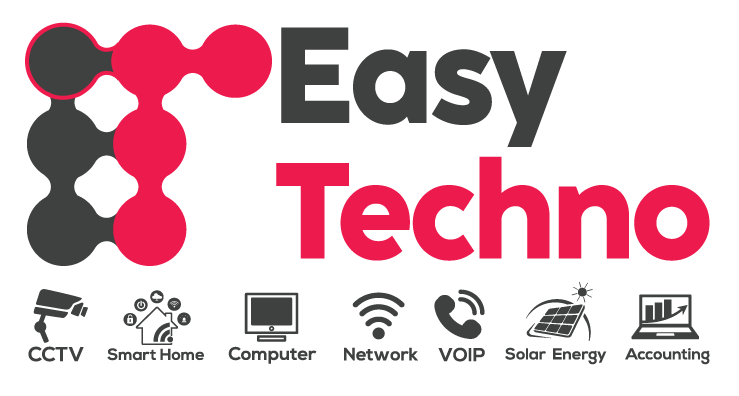Cloud Storage vs. On-Premise – What’s Right for UAE Startups?

Cloud Storage vs. On-Premise – What’s Right for UAE Startups?
The dynamic startup ecosystem in the UAE is characterized by rapid innovation, ambitious growth targets, and a need for agile decision-making. As these new ventures establish their technological foundations, one critical choice stands out: where to store and manage their vital data and applications. The fundamental debate often boils down to cloud storage versus on-premise infrastructure. Both options have distinct advantages and disadvantages, and the ‘right’ choice is far from universal, depending heavily on a startup’s specific needs, resources, growth trajectory, and risk tolerance. This article delves into the core differences, benefits, and drawbacks of each approach, specifically considering the landscape for startups operating within the UAE.
Understanding On-Premise Storage
On-premise storage refers to storing data and running applications on servers located physically within your own office or datacenter. You own the hardware, the software licenses, and you are responsible for managing, maintaining, and securing everything from the physical servers to the network infrastructure and the data itself.
Pros of On-Premise for UAE Startups:
- Full Control: You have absolute control over your hardware, software, and data. This can be appealing for startups dealing with highly sensitive information or those with stringent internal security policies.
- Perceived Security: For some, having data physically within their own facility provides a greater sense of security compared to entrusting it to a third party, although actual security depends entirely on internal capabilities.
- Potentially Lower Long-Term Cost (in specific scenarios): If data storage and processing needs are very stable, predictable, and high volume over a long period, and the startup has the CapEx available upfront and OpEx for maintenance/staff, the Total Cost of Ownership (TCO) *could* potentially be lower over many years, but this is rare for the volatile nature of startups.
- No Reliance on Internet Connectivity for Access: Accessing data and applications stored locally doesn’t rely on external internet speeds or uptime (though backups and external communication still do).
Cons of On-Premise for UAE Startups:
- High Upfront Investment (CapEx): Acquiring servers, storage arrays, networking equipment, software licenses, and setting up a suitable physical environment requires significant capital expenditure. This can be a major hurdle for cash-strapped startups.
- Ongoing Maintenance & Operational Costs (OpEx): You are responsible for power, cooling, physical security, hardware maintenance, software updates, patches, and replacements. These costs are predictable but continuous.
- Requires Dedicated IT Expertise: Managing and maintaining on-premise infrastructure requires skilled IT professionals, which adds to staffing costs and overhead.
- Scalability Challenges: Scaling up means purchasing, installing, and configuring new hardware and software, a time-consuming and expensive process. Scaling down is often impossible; you’re left with depreciating assets.
- Disaster Recovery Responsibility: Implementing robust disaster recovery and backup solutions (offsite backups, redundant systems) is entirely your responsibility and adds significant complexity and cost.
- Physical Space Requirements: Servers require dedicated space, which can be expensive, especially in prime business locations in the UAE.
Understanding Cloud Storage
Cloud storage involves storing data on remote servers managed by a third-party provider (like Amazon Web Services, Microsoft Azure, Google Cloud Platform, or regional providers). You access your data and applications over the internet, typically paying a subscription fee based on usage (storage capacity, data transfer, processing power, etc.).
Pros of Cloud Storage for UAE Startups:
- Lower Upfront Investment (OpEx Model): Cloud services operate on a pay-as-you-go or subscription model, converting large CapEx into manageable operating expenses. This frees up capital for core business activities.
- Rapid and Easy Scalability: You can quickly and easily scale storage capacity and computing power up or down based on demand. This is invaluable for startups experiencing unpredictable or rapid growth.
- High Accessibility: Data and applications can be accessed from anywhere with an internet connection, facilitating remote work and collaboration across different locations or time zones.
- Reduced IT Burden: The cloud provider handles the infrastructure management, maintenance, updates, and power. This allows a startup’s lean IT team (or even non-IT staff initially) to focus on core business applications and strategy rather than managing hardware. Leveraging IT solutions from cloud providers or partners simplifies operations significantly.
- Built-in Disaster Recovery & Reliability: Major cloud providers offer highly redundant infrastructure distributed across multiple data centers. This provides inherent reliability and simplifies setting up robust backup and disaster recovery solutions.
- Automatic Updates & Maintenance: The provider takes care of patching, updates, and hardware refreshes, ensuring you always have access to relatively modern and secure infrastructure.
- Focus on Core Business: By offloading infrastructure management, startups can dedicate more resources and focus to developing their product, serving customers, and growing the business.
Cons of Cloud Storage for UAE Startups:
- Internet Dependency: Accessing your data and applications requires a stable and reliable internet connection.
- Perceived Security and Privacy Concerns: While major cloud providers invest heavily in security and compliance, some startups may have concerns about entrusting their data to a third party. However, cloud security is often more advanced than what a small startup can afford or manage on-premise.
- Vendor Lock-in: Migrating data and applications between cloud providers can be complex and costly, potentially leading to vendor lock-in.
- Cost Management: While the OpEx model is beneficial, costs can increase rapidly with high usage if not monitored and managed effectively. Understanding the pricing model is crucial.
- Data Residency: Depending on the type of data and specific UAE regulations, there might be requirements for data to physically reside within the UAE. Major cloud providers often have local regions or offer solutions to address this, but it requires verification.
Comparing the Two: A UAE Startup’s Perspective
For most startups in the UAE, the comparison often heavily favors cloud solutions, especially in the early stages. Here’s why:
- Capital Constraints: Startups typically prioritize preserving capital. The cloud’s OpEx model aligns perfectly with this, allowing them to avoid the significant upfront investment required for on-premise infrastructure.
- Need for Agility and Speed: The UAE market is fast-paced. Startups need to iterate quickly, scale resources rapidly based on market feedback, and deploy new services without delay. Cloud infrastructure provides this unparalleled agility and speed. On-premise scaling is simply too slow and cumbersome for the startup environment.
- Focus on Innovation, Not Infrastructure: A startup’s core value lies in its idea and execution, not its ability to manage servers. Cloud allows the team to focus on product development, customer acquisition, and growth, rather than getting bogged down in IT maintenance.
- Predictable (but Scalable) Costs: While cloud costs scale with usage, the base subscription is often more predictable than the potential hidden costs and unexpected failures of managing physical hardware. With proper monitoring, costs can be managed.
- Access to Advanced Technologies: Cloud platforms offer easy access to a wide range of advanced services (AI/ML, big data analytics, managed databases) that would be prohibitively expensive or complex to set up on-premise for a startup.
However, there might be niche cases where a hybrid approach or even predominantly on-premise could be considered, such as startups dealing with highly specific, extremely sensitive data under strict, non-standard regulatory requirements, or those involved in operations where internet connectivity is a frequent issue (less likely for knowledge-based startups in UAE cities). Even in these cases, components like backup, disaster recovery, or specific applications might still reside in the cloud.
Factors for UAE Startups to Consider When Deciding:
To make the right choice, a UAE startup should ask itself:
- What is our current and projected growth rate and how unpredictable is it?
- What is our available capital for initial IT setup (CapEx)?
- What are our ongoing operational budget capabilities (OpEx)?
- What are our specific security and compliance requirements (including data residency)? Can a cloud provider meet these?
- How critical is 24/7 access and how reliant are we on internet connectivity?
- What is our in-house IT expertise level? Do we have the skills to manage on-premise infrastructure?
- How much time and resources do we want to dedicate to managing IT infrastructure versus focusing on our core business?
- What are the long-term costs over 3-5 years for each option, considering potential growth?
Seeking expert guidance from an experienced technology partner can be invaluable in evaluating these factors and designing a solution that fits the startup’s unique circumstances.
Conclusion
For the vast majority of UAE startups, the cloud offers compelling advantages in terms of cost-effectiveness, scalability, agility, and reduced operational burden. It allows nascent businesses to preserve capital, respond quickly to market changes, and focus their limited resources on innovation and growth. While on-premise provides maximum control, the associated costs, complexity, and lack of agility are often significant deterrents for a startup environment. The decision isn’t just about where the data sits, but about building a technology foundation that supports rapid iteration, financial prudence, and ultimately, the long-term success of the venture in the competitive UAE market. Choosing the right IT solutions is a strategic imperative, and for many, the flexibility and scalability of the cloud make it the clear winner.
